6 Life-Changing Lessons from 2 Retirees Who Are Changing Lives
Retirement is the perfect time to redefine yourself, find a new sense of purpose and channel your passion in a meaningful way. What could that look like for you? Meet a doctor and a pilot who could give you some ideas for a happy, fulfilling retirement.

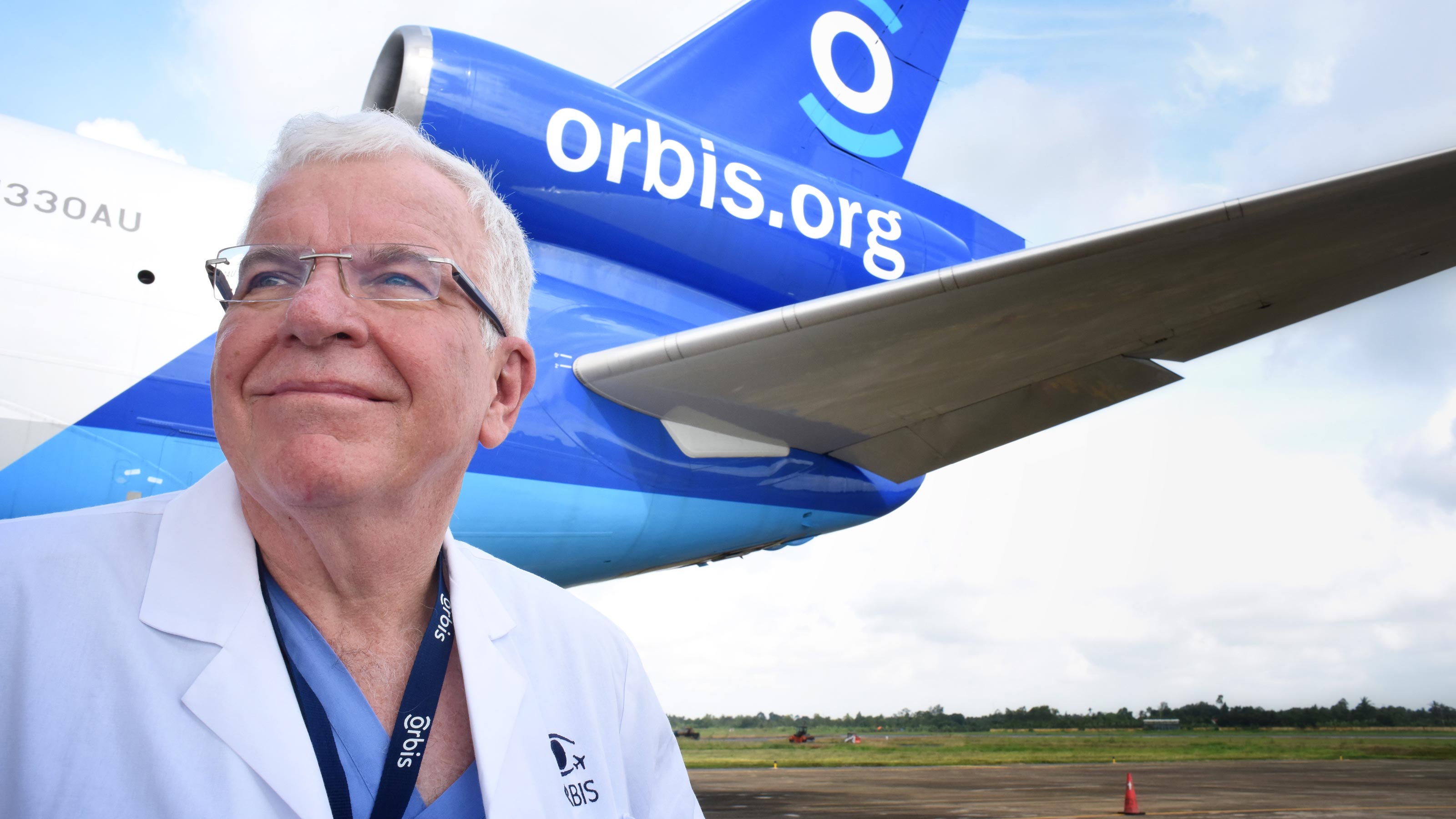
Profit and prosper with the best of Kiplinger's advice on investing, taxes, retirement, personal finance and much more. Delivered daily. Enter your email in the box and click Sign Me Up.
You are now subscribed
Your newsletter sign-up was successful
Want to add more newsletters?

Delivered daily
Kiplinger Today
Profit and prosper with the best of Kiplinger's advice on investing, taxes, retirement, personal finance and much more delivered daily. Smart money moves start here.

Sent five days a week
Kiplinger A Step Ahead
Get practical help to make better financial decisions in your everyday life, from spending to savings on top deals.

Delivered daily
Kiplinger Closing Bell
Get today's biggest financial and investing headlines delivered to your inbox every day the U.S. stock market is open.

Sent twice a week
Kiplinger Adviser Intel
Financial pros across the country share best practices and fresh tactics to preserve and grow your wealth.

Delivered weekly
Kiplinger Tax Tips
Trim your federal and state tax bills with practical tax-planning and tax-cutting strategies.

Sent twice a week
Kiplinger Retirement Tips
Your twice-a-week guide to planning and enjoying a financially secure and richly rewarding retirement

Sent bimonthly.
Kiplinger Adviser Angle
Insights for advisers, wealth managers and other financial professionals.

Sent twice a week
Kiplinger Investing Weekly
Your twice-a-week roundup of promising stocks, funds, companies and industries you should consider, ones you should avoid, and why.

Sent weekly for six weeks
Kiplinger Invest for Retirement
Your step-by-step six-part series on how to invest for retirement, from devising a successful strategy to exactly which investments to choose.
Editor’s note: Welcome to “The Retirement Happy Hour,” a lifestyle series that explores how people find happiness in retirement, featuring the personal stories of real retirees. Plus, scientific research that reveals how we can all start living a happier, more meaningful life right now.
Imagine as a child never seeing your mother’s smile. Or imagine being unable to attend school because the words in your textbooks seem to flow across the pages like spilled ink. Or imagine the sense of hopelessness in having your livelihood slip away as a dense fog obscures your vision.
Now imagine all that pain, heartbreak and peril is miraculously cured by the kind hands of a foreign doctor who traveled to your village aboard a “flying eye hospital,” commandeered by a former U.S. Air Force pilot and staffed with a team of volunteers — all of whom help you for nothing but the reward of seeing you healed.
Lastly, imagine that doctor, pilot or volunteer is you. Because this could be your retirement, or at least part of it: changing the lives of others. It could be part of the lives of everyone who wish to lead a happier, more meaningful life.
This is what retirement looks like for Dr. Lee Alward and Gary Dyson, the real-life doctor and pilot referenced above. Both men are volunteers at Orbis International, a nonprofit dedicated to fighting avoidable blindness around the world.
Alward serves as Professor Emeritus of Ophthalmology and Visual Sciences at the University of Iowa after having worked at the university and private practice for more than 30 years. He donates his time as a volunteer aboard Orbis’ Flying Eye Hospital and as a mentor to aspiring eye health professionals in different countries.
As Orbis’ Chief Pilot, Dyson helps fly and navigate the Flying Eye Hospital, a former FedEx cargo plane that was transformed into a state-of-the-art teaching facility complete with operating room, classroom and recovery room. He is an Air Force veteran who went on to join FedEx and eventually retired as a Chief Pilot there.
These two retirees have dedicated their second act to giving back. And that’s something that benefits them as well as the cause they are serving. Research shows that people, particularly older adults, experience a boost in mental and physical well-being after volunteering.
So, as you scramble to save for retirement, remember their important lesson: Money is not the most important piece of a fulfilling retirement. Focus on all those things money cannot always buy – a sense of purpose, happiness, relationships.
Alward and Dyson serve as models for how you can live a happy, meaningful retirement when you dedicate yourself to giving back. Recently, I was fortunate to interview them via email. They graciously agreed to share their stories and thoughts on how volunteering can change the way you think about retirement and life in general.
Based on our correspondence, here are six life-changing lessons from these two retirees who have chosen to make their later years a time for helping others.
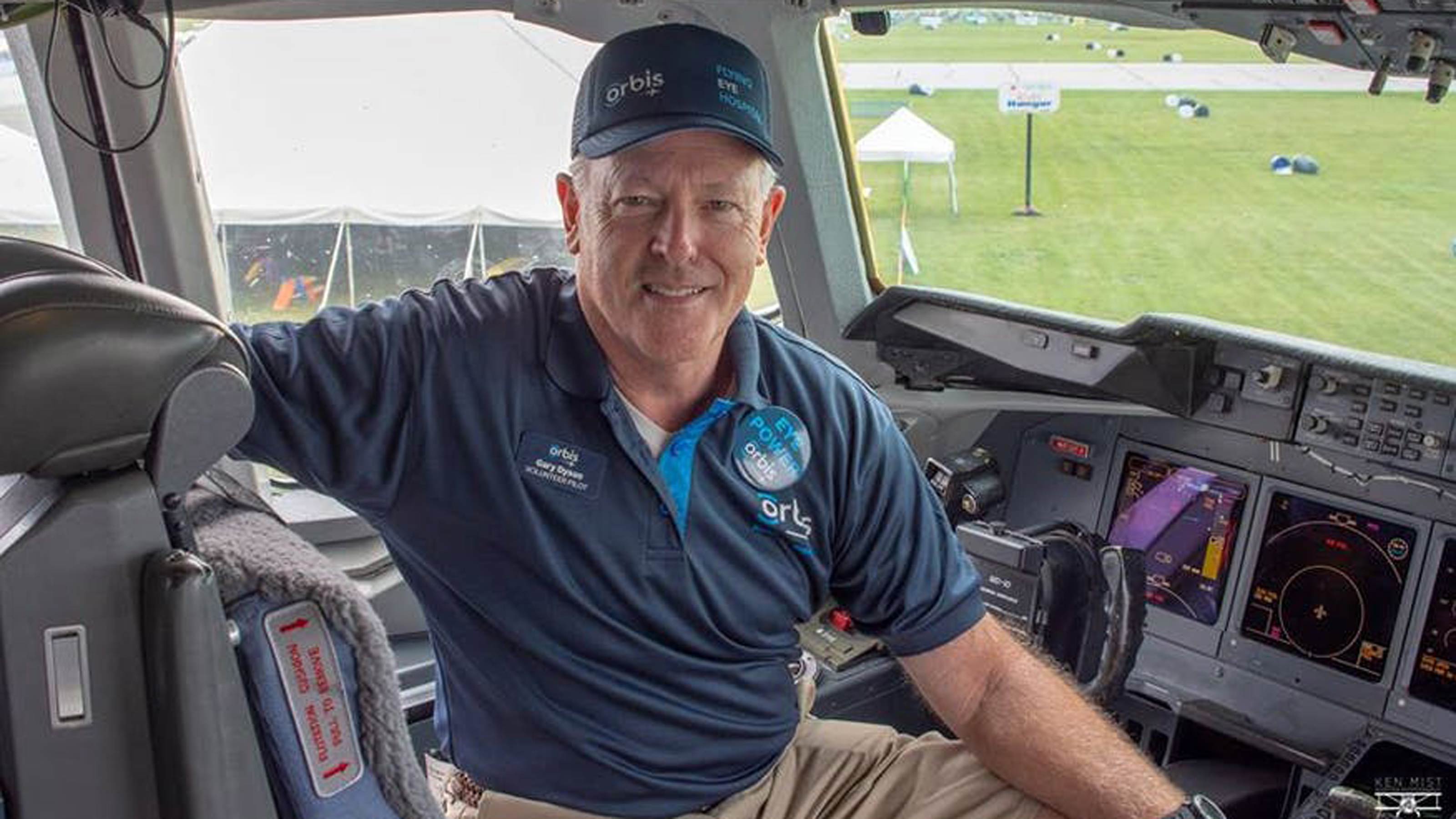
Lesson No. 1: Your ‘calling’ doesn’t have to end at retirement
Who will you be in retirement?
Sure, retirement is a time to become whomever you want. However, many people feel a sense of loss when their career comes to an end. In a retirement study by Edward Jones and Age Wave, more than a quarter (27%) of retirees surveyed said they “struggled with the transition from work to retirement.” It is a condition known as “identity distress,” which is especially common among those who were forced to retire. It is why some people are reluctant to retire, fearing a loss of identity along with the pressure to reinvent themselves.
Identity is important in retirement. Nearly all (92%) retirees in the Edward Jones/Age Wave study said that “having purpose is key to a successful retirement.” Finding a sense of purpose doesn’t have to mean a complete makeover. Both Alward and Dyson say that giving back has given them the ability to continue doing the work they love, just in a new form.
Alward: I loved everything about my job, the clinical practice, surgery, research and teaching. I think that I loved teaching the most. … Teaching is the one part of my job that I can do in retirement. I have had great teachers and mentors in my life and recognize what a difference I can make through teaching.
Dyson: I grew up in the ’60s when images of space were everywhere, and everyone wanted to become an astronaut. But of course, to become an astronaut, you had to become a pilot first. It was always my dream, so after college, I joined the U.S. Air Force. ... I always knew I wanted to give back in some capacity, and after retiring, I think it gave me the perfect opportunity to continue using my skills to benefit others. I am incredibly grateful to have the chance to continue my passion for aviation and combine that with volunteer work.
The nonprofit sector offers many opportunities for retirees who want to stay active in their respective fields. Many organizations value the skills and knowledge of older adults to advance their missions.
Take it from Louise Harris, Chief of Global Communications and Marketing at Orbis International: “We have an extremely diverse pool of 400 volunteers from over 30 countries, including medical professionals and pilots, currently working as well as retirees. One-third of our volunteer pilots are retired. As with all our volunteers, we highly value their skills and experience as well as their passion to give back and help transform lives.”

Lesson No. 2: Your life satisfaction improves by improving the lives of others
Paradoxically, although retirement is a time for living life on your own terms, the secret to a happier and healthier life may be to make it less about you. Studies of older volunteers show they experience improved mental and physical health, a greater sense of purpose, increased social activity and higher overall life satisfaction.
By giving back, Alward has been rewarded with a heightened sense of inspiration and gratitude in life.
Alward: I always come back inspired by the people I meet. It makes me grateful for what I’ve had, and that I’ve had great teachers my whole life. It gives me an appreciation for the people I meet and that they want to learn as well.
For Dyson, watching a person regain their eyesight is always a poignant and joyful experience.
Dyson: There is nothing in the world like it – especially knowing that it will drastically change that person’s life, allowing them to read, learn, work or support their family. Having a small part in that is very rewarding to me.
Volunteering can be a tremendous source of happiness, purpose and fulfillment. Of course, giving back doesn’t require a passport. You are sure to find many local organizations near you where you can make a difference in the lives of others – and your own.
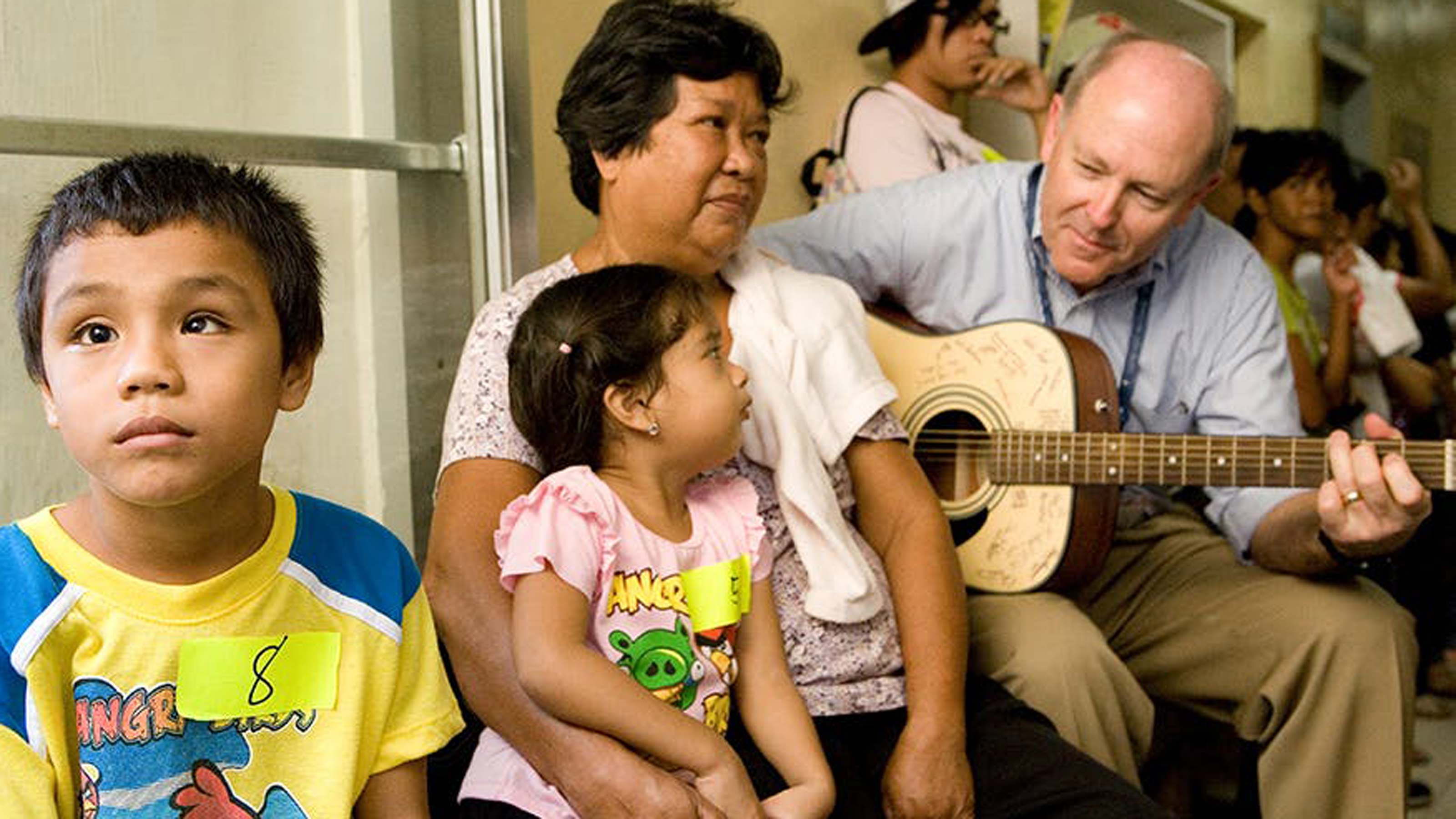
Lesson No. 3: Being part of a community will help you thrive
Socializing is one of the most important contributors to our mental and physical well-being, as it allows us to connect with other people and share in mutual activities. Joining Orbis has been a rewarding way for Dr. Alward and Dyson to interact with a team of like-minded people working toward a common cause.
Alward: By volunteering with Orbis, I get to work with people who have all the right motives for being in medicine. Everyone in Orbis is humble and friendly and works hard. It's just a great group.
Dyson: After 20 years of volunteering, I believe Orbis to be an exceptional nonprofit organization that is truly helping to fight avoidable blindness. Working alongside others so talented and dedicated makes me want to be in the Orbis family as long as possible.
What they may not realize is all the benefits that these social connections provide. A growing body of research has shown that socializing helps reduce the risk of loneliness and depression while boosting cognitive skills, happiness and even longevity. Mayo clinic psychologist Dr. Craig Sawchuck says, “We are social animals by nature, so we tend to function better when we're in a community and being around others.”
The volunteer work Alward and Dyson are doing is a good example of how you can build strong social connections beyond family and friends. After all, as we age we tend to lose many of our closest connections. In addition to volunteering, other ways to build a community include joining a local sports league, participating in community center events and even part-time work. Ultimately, social connection requires the effort to put yourself out there and engage with interesting activities and people.
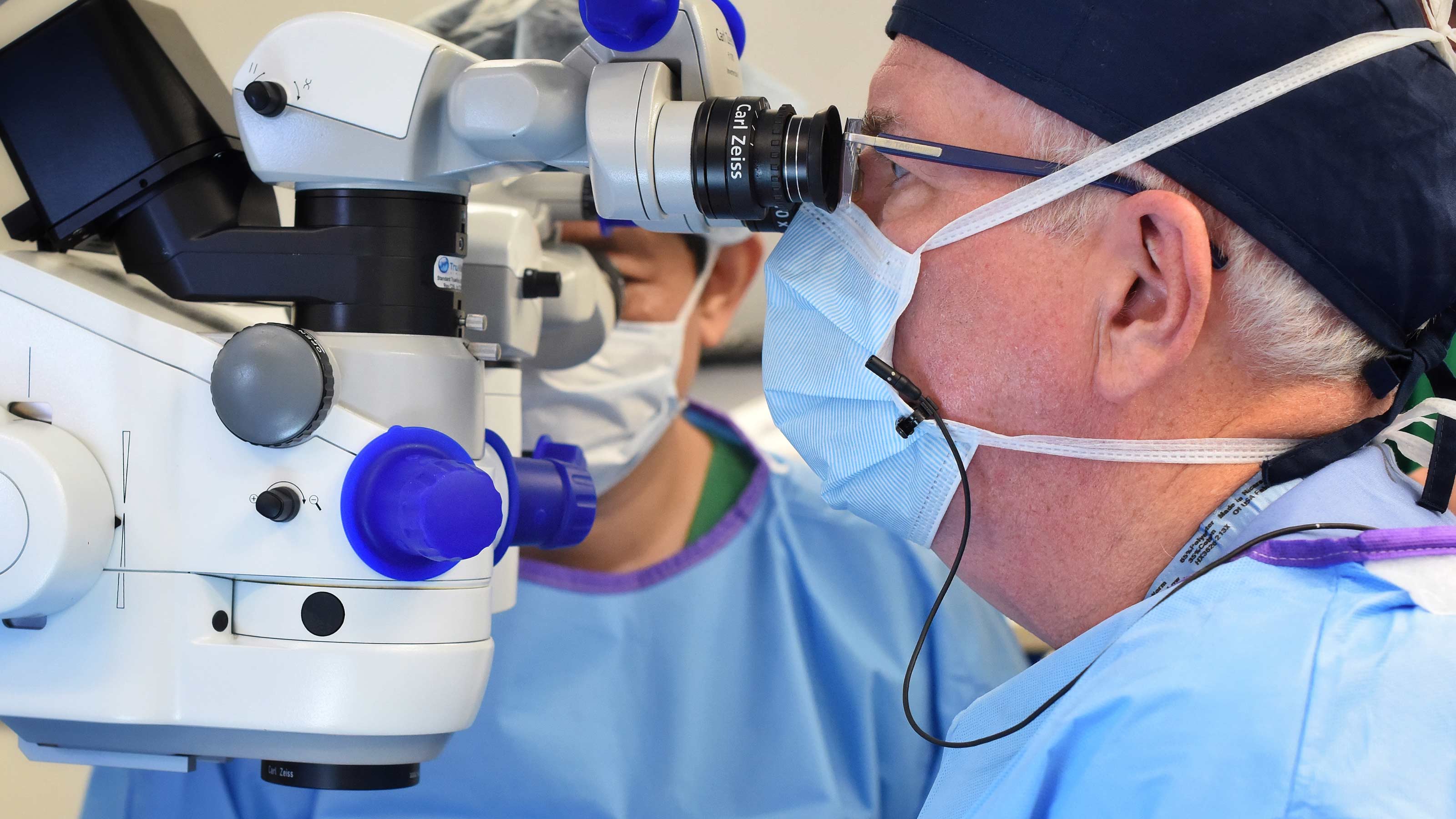
Lesson No. 4: Mentoring allows you to make a bigger difference
Anyone saving and investing for retirement will know the power of compounding. That is, the earnings on your earnings that essentially snowball over time. The same effect can happen through mentoring. One of the primary roles for Alward and Dyson is to mentor others, which allows them to make a bigger difference than with their own individual efforts.
Alward: I love that Orbis makes a difference in a sustained way – through training – rather than just swooping in and taking a bunch of cataracts out or doing a bunch of glaucoma surgeries. By teaching ophthalmologists how to take care of patients in their own communities, I feel that we are making a bigger difference. … For me, the most dramatic example was in Kenya. The two physicians who I mentored were skilled and enthusiastic. My role was to teach them how to manage pediatric glaucoma, because there was no care for the condition available at that time in the country. They were like sponges and so eager to learn. With the support of Orbis, they went on to pursue more training in Canada. It has been so rewarding to see their journey and hear their names called out as leaders in African ophthalmology.
Dyson: Now that I’m retired, I have much more time and energy to spend flying the Flying Eye Hospital and managing the cadre of 15 dedicated volunteer pilots who also love this opportunity. … I’d love to go on every trip!
Turns out, mentorship is a two-way street. A Stanford University report found older adults who volunteer to work with young people feel a boost in emotional satisfaction and a positive sense of meaning. Building a relationship as a mentor can start with a simple online search. The non-profit organization Encore.org, for example, helps connect older adults as mentors to young people.
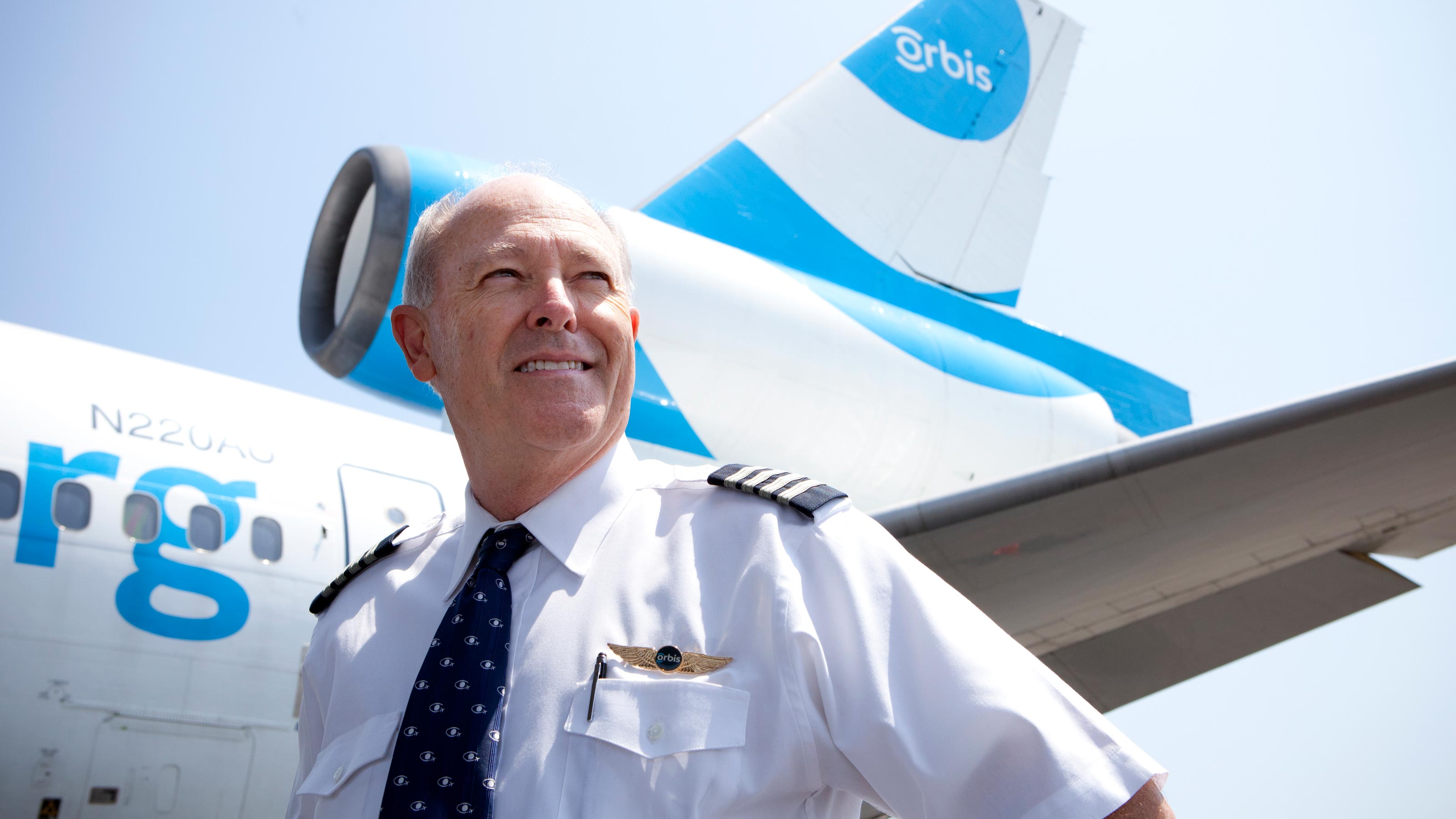
Lesson No. 5: You’re never too old or too experienced to grow as a person
In his fascinating book, Happiness Is a Choice You Make: Lessons from a Year Among the Oldest Old, journalist John Leland writes: “Being an expert is exhausting. Being a student — letting go of your ego — is like sitting for a banquet at the best restaurant you'll ever visit.”
Visiting different countries and meeting people from different backgrounds have made students out of Alward and Dyson both. They say it has been a source of great personal growth.
Alward: On my first volunteer trip, my brain was wired that I was this great American doctor, and I'm going to go teach these guys a thing or two. When I got to work on the plane, I realized what great doctors my trainees were, how dedicated they were, and how hungry they were for knowledge. I realized how much I could learn from them. I find it very rewarding to learn from various cultures and people, an experience that would not have been accessible to me if I did not join the Orbis team.
Dyson: I met a woman in Nigeria whose daughter had her sight restored after an operation on the Flying Eye Hospital. The woman was so overwhelmed and thankful that her daughter could see again that she wanted to give me her family’s cow. I was so touched, because I knew how important the cow would have been to her family. That she wanted to give it to me as an expression of her gratitude was a very humbling experience.
For many of us, interactions with different cultures require us to do one of the most popular activities: travel. Exposure to new people and cultures explains why travel has been shown to increase empathy. So, go forth and travel. Because growth never happens by staying in place.
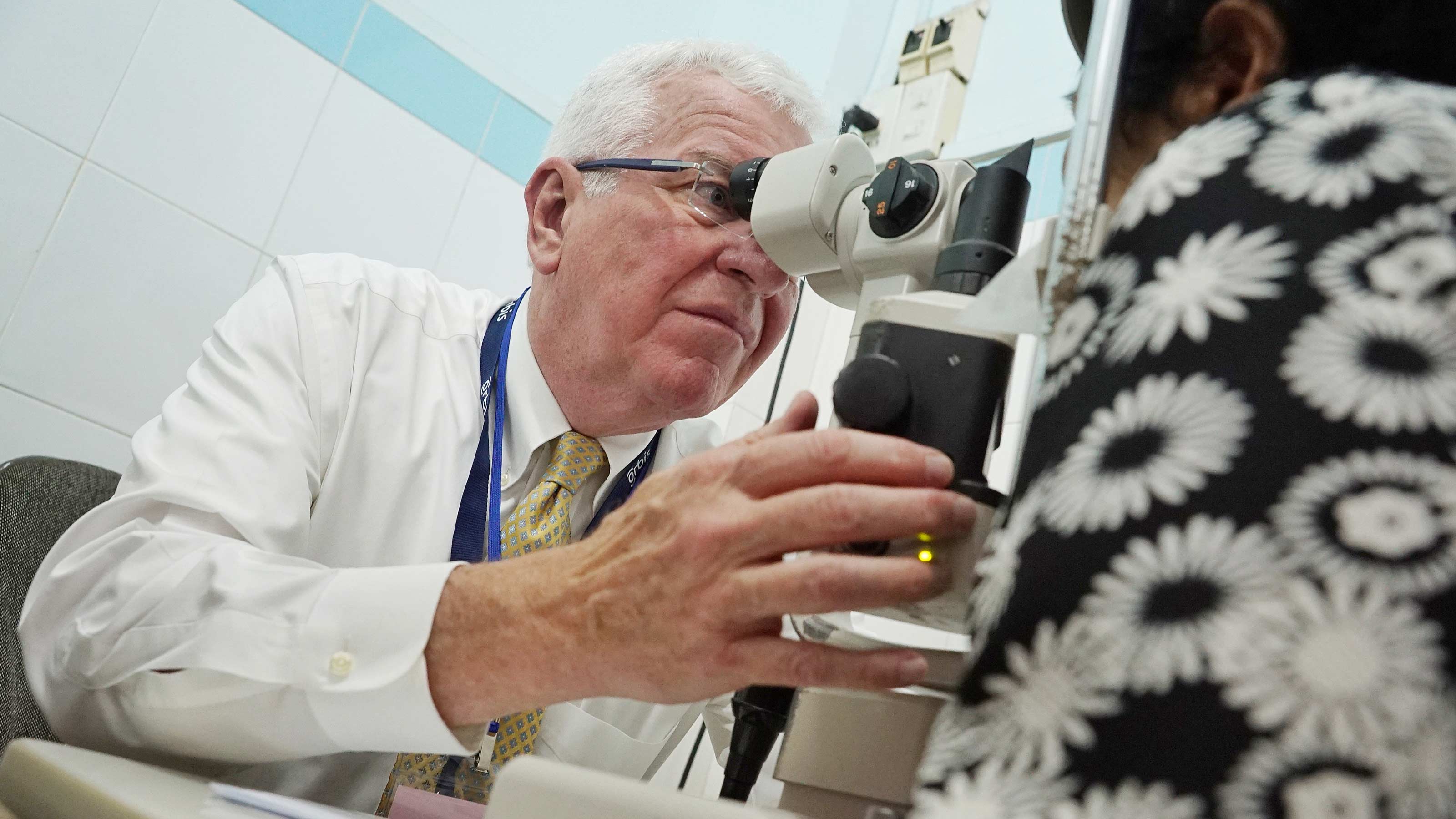
Lesson No. 6: Variety truly is the spice of life – and possibly a happy retirement
Retirees often experience a spike of well-being and life satisfaction immediately upon retirement, only to be followed by a sharp decline in happiness a few years later, according to a 2012 study in the Journal of Happiness Studies.
Why’s that?
Although retirees are generally happier than those still working, some can find retirement underwhelming — or even boring — if they have nothing to look forward to or no hobbies that help provide a sense of purpose.
Alward and Dyson have found their purpose in giving back, but also recognize the need to find joy in other places, especially in spending time with loved ones.
Alward: I find I’m a little short on hobbies, as I’ve spent so much of my time focused on ophthalmology. But I’m grateful my grandkids live close by, so I get to spend more quality time with them. … I have fallen in with a crowd that golfs a lot. I walk about 72 holes a week, which has been great for my weight and has taught me patience. I am grateful that medicine came easier to me than golf! … I enjoy cooking. I spend every Thursday trying out new recipes, and I am trying to organize our family photographs and figure out my family history.
Dyson: I enjoy spending time with friends and family, especially my two granddaughters. ... I still do some water-skiing at the lake and play music as often as I can.
Even in retirement, Dyson hasn’t stopped looking forward to what he wants to accomplish: “I do have the goal of volunteering with Orbis for at least 25 years, which will also coincide with my 50th year as a pilot. I sure hope to achieve both.”
New experiences can shape our brains in positive ways. A study published in Nature Neuroscience suggests exploring new places and trying new things is beneficial for brain development and feeling happy.
Therefore, considering your retirement could span decades, it’s worthwhile to start trying new activities today so that you never worry about growing bored in retirement. The goal is to find things you truly love so that you don’t run out of things to do.
By giving back, you’ll never run out of organizations, people, animals and communities that could use a helping hand. The greatest challenge just may be the fear of change. But you can overcome that fear by simply giving it a try.
“Go for it!” Dyson says. “It’s an incredibly gratifying experience to be able to spend my days helping others.”
Profit and prosper with the best of Kiplinger's advice on investing, taxes, retirement, personal finance and much more. Delivered daily. Enter your email in the box and click Sign Me Up.

Jacob Schroeder is a financial writer covering topics related to personal finance and retirement. Over the course of a decade in the financial services industry, he has written materials to educate people on saving, investing and life in retirement.
With the love of telling a good story, his work has appeared in publications including Yahoo Finance, Wealth Management magazine, The Detroit News and, as a short-story writer, various literary journals. He is also the creator of the finance newsletter The Root of All (https://rootofall.substack.com/), exploring how money shapes the world around us. Drawing from research and personal experiences, he relates lessons that readers can apply to make more informed financial decisions and live happier lives.
-
 5 Vince Lombardi Quotes Retirees Should Live By
5 Vince Lombardi Quotes Retirees Should Live ByThe iconic football coach's philosophy can help retirees win at the game of life.
-
 The $200,000 Olympic 'Pension' is a Retirement Game-Changer for Team USA
The $200,000 Olympic 'Pension' is a Retirement Game-Changer for Team USAThe donation by financier Ross Stevens is meant to be a "retirement program" for Team USA Olympic and Paralympic athletes.
-
 10 Cheapest Places to Live in Colorado
10 Cheapest Places to Live in ColoradoProperty Tax Looking for a cozy cabin near the slopes? These Colorado counties combine reasonable house prices with the state's lowest property tax bills.
-
 Don't Bury Your Kids in Taxes: How to Position Your Investments to Help Create More Wealth for Them
Don't Bury Your Kids in Taxes: How to Position Your Investments to Help Create More Wealth for ThemTo minimize your heirs' tax burden, focus on aligning your investment account types and assets with your estate plan, and pay attention to the impact of RMDs.
-
 Are You 'Too Old' to Benefit From an Annuity?
Are You 'Too Old' to Benefit From an Annuity?Probably not, even if you're in your 70s or 80s, but it depends on your circumstances and the kind of annuity you're considering.
-
 In Your 50s and Seeing Retirement in the Distance? What You Do Now Can Make a Significant Impact
In Your 50s and Seeing Retirement in the Distance? What You Do Now Can Make a Significant ImpactThis is the perfect time to assess whether your retirement planning is on track and determine what steps you need to take if it's not.
-
 Your Retirement Isn't Set in Stone, But It Can Be a Work of Art
Your Retirement Isn't Set in Stone, But It Can Be a Work of ArtSetting and forgetting your retirement plan will make it hard to cope with life's challenges. Instead, consider redrawing and refining your plan as you go.
-
 The Bear Market Protocol: 3 Strategies to Consider in a Down Market
The Bear Market Protocol: 3 Strategies to Consider in a Down MarketThe Bear Market Protocol: 3 Strategies for a Down Market From buying the dip to strategic Roth conversions, there are several ways to use a bear market to your advantage — once you get over the fear factor.
-
 For the 2% Club, the Guardrails Approach and the 4% Rule Do Not Work: Here's What Works Instead
For the 2% Club, the Guardrails Approach and the 4% Rule Do Not Work: Here's What Works InsteadFor retirees with a pension, traditional withdrawal rules could be too restrictive. You need a tailored income plan that is much more flexible and realistic.
-
 Retiring Next Year? Now Is the Time to Start Designing What Your Retirement Will Look Like
Retiring Next Year? Now Is the Time to Start Designing What Your Retirement Will Look LikeThis is when you should be shifting your focus from growing your portfolio to designing an income and tax strategy that aligns your resources with your purpose.
-
 I'm a Financial Planner: This Layered Approach for Your Retirement Money Can Help Lower Your Stress
I'm a Financial Planner: This Layered Approach for Your Retirement Money Can Help Lower Your StressTo be confident about retirement, consider building a safety net by dividing assets into distinct layers and establishing a regular review process. Here's how.
